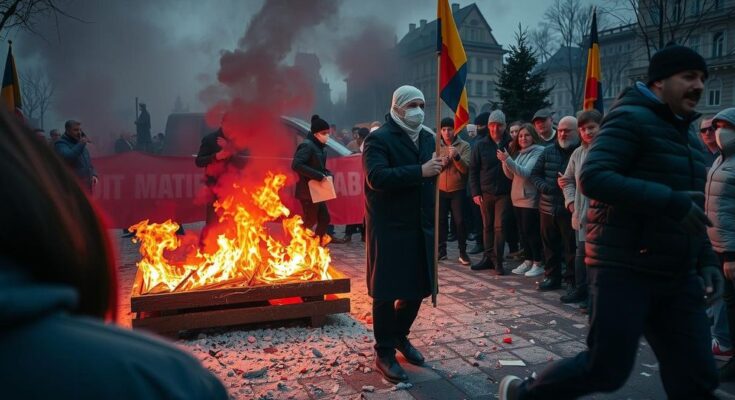Romania has canceled its upcoming presidential election due to evidence of Russian interference through TikTok and other channels. Prime Minister Marcel Ciolacu deemed the annulment necessary to protect electoral integrity, while critics condemned the decision as an attack on democracy. The controversy highlights tensions in Romanian politics and the risk of compromising the nation’s commitments to NATO and the EU amid rising ultranationalism under Călin Georgescu, who had gained popularity from alleged manipulation tactics. The government faces the challenge of organizing fresh elections following this unprecedented ruling.
In a shocking turn of events, Romania has canceled its presidential election set for December 8 due to significant evidence of Russian interference, particularly through the Chinese-owned TikTok platform. This decision, made just two days before the scheduled voting date, has ignited political upheaval across the nation. Călin Georgescu, the controversial ultranationalist candidate, had unexpectedly surged in popularity following alleged manipulative tactics, including state-sponsored influence operations reminiscent of Russian strategies observed in neighboring countries such as Ukraine and Moldova.
Prime Minister Marcel Ciolacu declared the annulment as a necessary measure, stating that the release of declassified intelligence documents demonstrated a blatant distortion of the electoral process stemming from foreign meddling. In contrast, Georgescu and his supporters have alleged hypocrisy, while political opponents, including centrist candidate Elena Lasconi, criticized the ruling as an assault on democratic principles.
The presence of Russian operatives attempting to shape Romanian politics has drawn attention, with U.S. Secretary of State Antony Blinken highlighting the scale and sophistication of the interference. The Romanian Constitutional Court’s cancelation of the election not only disrupts the political landscape but raises questions about the nation’s stability and commitment to NATO and European Union alliances. As the government prepares for new elections, analysts warn of the broader implications for Romania’s security and regional integrity.
The political climate in Romania has been fraught with tension, particularly following a shocking first-round victory by ultranationalist Călin Georgescu. His ascent, aided by social media manipulation, revealed vulnerabilities in Romania’s electoral integrity. The intelligence community uncovered disturbing links between Russian influence and the electoral process, prompting authorities to act decisively in safeguarding democratic norms and national sovereignty. Romania, as a critical NATO and EU member, faces potential ramifications for its geopolitical stance amid rising nationalist sentiments.
The annulment of the Romanian presidential election marks a pivotal moment in the nation’s political trajectory. It underscores the serious impact of foreign interference on democratic processes and reflects the complexities surrounding national identity and security in an increasingly polarized environment. As Romania navigates this crisis, the decisions made in the coming months will be vital in determining its future direction and resilience against external threats.
Original Source: cepa.org




